In an era where knowledge is a strategic resource, innovation is the driving force for growth, and digital transformation is the development method, mainstream journalism not only performs the task of communication but also becomes an essential soft infrastructure in building a knowledge society.
From leading awareness, spreading new thinking, to accompanying the startup ecosystem, the press is affirming its pioneering role in the journey of creating the future.
Journalism in the journey of building a knowledge economy
The 21st century is the century of the knowledge economy, where added value is no longer based on traditional material resources, but on the intellectual content, technology, innovation and the ability of society to absorb and produce new knowledge.
For Vietnam, the orientation of developing a knowledge-based economy is not only a modern choice, but also an inevitable path to break through, overcome the middle-income trap and participate more deeply in the global value chain.
In that journey, journalism is not left out. As an industry that operates on the foundation of language, data, technology and social knowledge, journalism is an indispensable soft infrastructure in the process of transitioning to a knowledge economy.
The press not only informs, but also spreads, inspires and popularizes new awareness, new ways of thinking and new development models.
First of all, the press helps transform abstract concepts such as "digital transformation," "AI," "blockchain," "industrial revolution 4.0," "digital skills," "data security"... into easy-to-understand content that is close to the majority of people.
Columns such as “Digital Economy,” “Technology World,” “Science-Education ,” “Young Creativity,” “Digital Transformation Forum”... not only provide information but also help the public form intellectual thinking.
Not everyone has access to scientific literature, but many people understand the need for artificial intelligence, the importance of data, or the opportunities from the green economy thanks to in-depth, accessible articles in the press. This is the “knowledge transfer” function of the press, or to put it more simply, the press is the bridge between experts and the public.

Besides, the press contributes to forming a learning society, when information is not just for knowing, but for learning, for changing, for acting.
An analysis of the transformation of agricultural production models, a report on a successful digital enterprise or an interview with an international expert... can all become a cognitive "push", thereby creating specific changes in community behavior.
Not only stopping at the role of media, the press agencies themselves are now becoming "insiders" of the knowledge economy.
Digital newsrooms, data journalists, the use of AI in audience analysis, content personalization algorithms... are elements that show that the journalism industry itself is renewing itself to adapt to the knowledge economy. This demonstrates the journalism’s inherent capacity for learning and innovation. This is the core element for an industry to survive and develop in the new era.
The press is not just reporting on change, but being part of it.
Accompanying innovative startups
If the knowledge economy is a long-term vision, then innovative startups are the most concrete and dynamic expression of that vision. In creative ecosystems, the press not only “writes about” but also “writes with” – that is, becomes a companion, a media “midwife” for startups from the very beginning.
In particular, since the Government's Project 844 on "Supporting the national innovation and startup ecosystem to 2025" was launched (in 2016), the Vietnamese startup "wave" has exploded strongly, and revolutionary press has entered a new role: not only reporting news, but also building a strong wave of support for innovation.
Startup columns are increasingly appearing in print, online, radio and television. Stories about technology entrepreneurs, Make in Vietnam products, and overcoming difficulties have become popular “sources of inspiration”, affecting young people, parents, educators, investors and policy makers.
The press helps startups attract public attention, raise capital, find partners, and expand their markets. Some young businesses have found that a good article has opened new doors for them to reach customers or raise investment capital. The press acts as a “image launch pad,” helping startups tell their stories in an engaging, authentic, and credible way.
Not only reporting news, many press agencies have proactively created a space for connection. Forums such as Startup Vietnam, Techfest Vietnam, or media conferences on startups organized by VTV, VOV, Nhan Dan, Thanh Nien, Tuoi Tre, VnExpress... are all places to connect entrepreneurs, investors, management agencies and the public.
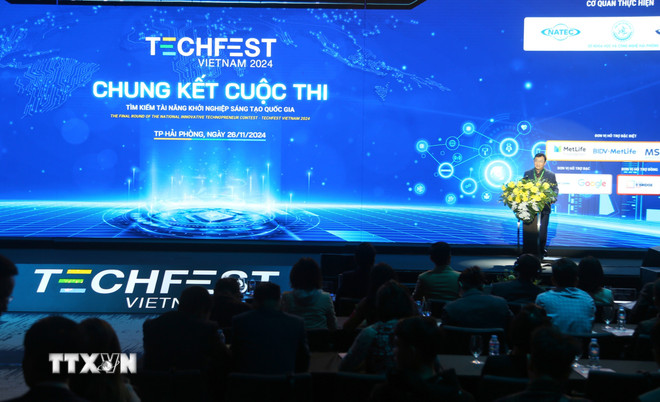
In addition to spreading positive spirit, the press also plays a good role in criticizing policies and identifying barriers to innovative startups. Many articles have pointed out cumbersome procedures, legal shortcomings, and impractical incentive mechanisms... Thanks to that, management agencies have gradually improved the legal framework for innovation, from the central to local levels.
Especially during the COVID-19 pandemic, when many startups face the risk of bankruptcy, the press not only reflects the current situation but also spreads adaptive initiatives: digital transformation, model change, and community connection.
Timely, motivating articles have helped many businesses maintain their creative spirit and overcome challenges.
Promoting the role of journalism in the era of knowledge and innovative startups
Despite its many outstanding contributions, the press still faces many challenges on its journey to accompany the knowledge economy and innovation ecosystem. These barriers are not only internal but also come from the policy environment, data infrastructure and coordination mechanisms between stakeholders.
First of all, the professional capacity of many editorial offices and press teams in new fields such as high technology, innovation, finance and technology... is still limited and does not meet practical requirements.
Writing about knowledge issues, especially specialized concepts such as AI, blockchain, digital transformation, or new business models, requires journalists to not only understand the content, but also know how to "translate" academic knowledge into popular language while still ensuring accuracy.
Meanwhile, in many newsrooms, reporters often hold multiple positions, lacking training, in-depth knowledge updates, and access to practical ecosystems.
In addition, coordination between the press, management agencies and innovative enterprises is still lacking. Although many networking forums have been organized, in general, there is still a lack of a systematic, continuous and long-term oriented tripartite coordination mechanism.
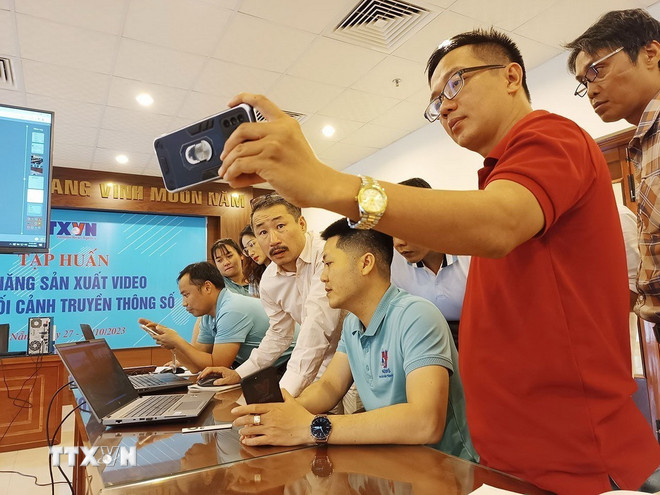
The development of national communication campaigns about startups, inspirational programs about lifelong learning, or platforms for popularizing mass knowledge is still scattered and unsynchronized.
To fully promote the role of journalism in the era of knowledge and creative entrepreneurship, a comprehensive approach is needed, with the cooperation of the entire political system, businesses, professionals and the press agencies themselves.
The press needs to increase investment in digital technology, AI and big data to meet the requirements of the knowledge economy. Speaking at the Conference on implementing tasks for 2025 (December 2024) of the Ministry of Information and Communications (now the Ministry of Science and Technology), Minister Nguyen Manh Hung affirmed that the information and communications industry is digital infrastructure, digital technology, digital industry, and leading the national digital transformation, so it must take on the mission of building the foundations for the country's development.
If Vietnam wants to "fly" up, it must have "wings," one being technology, the other being the spiritual strength aroused by the press, media and publishing. That means the press needs to boldly innovate its content production methods, modernize its newsrooms and optimize its ability to distribute information intelligently and personalized.
In a congratulatory letter to journalists nationwide on the 100th anniversary of Vietnam Revolutionary Press Day, Deputy Head of the Central Propaganda and Education Commission, President of the Vietnam Journalists Association Le Quoc Minh emphasized: continuous and stronger innovation, seeking development solutions to be able to conquer readers and audiences on new platforms, creating a difference between the press and other media channels.
Only by effectively realizing successful innovation and creation models can the press develop in a truly sustainable, professional, creative and humane manner, and continue to maintain its position as a key and essential media, a media beacon guiding public opinion and guiding people in the sea of information in the digital age.
Along with that, improving the quality of press human resources, especially the team of reporters writing about science, technology, and innovation, is an urgent requirement.
Speaking at the National Scientific Conference "100 years of Vietnamese revolutionary journalism accompanying the glorious revolutionary cause of the Party and the nation" (May 30, 2025), Mr. Nguyen Trong Nghia, Head of the Central Propaganda and Mass Mobilization Commission, concluded: Strengthening the training of political theory, professional skills, and digital skills for journalists, especially young reporters, is considered a key task to meet the increasingly high requirements of propaganda work in the new situation.
Therefore, it is necessary to make efforts to improve the quality of journalism training to meet standards and requirements of the new era - contributing to training journalists who are good at journalism, profound in political theory, knowledgeable about social life and proficient in technology application.
In addition, the press needs to establish its position in the innovation ecosystem as a creator, rather than just an observer or reporter.
In that context, the press needs to have a mechanism to regularly coordinate with ministries, sectors, businesses and science and technology organizations to spread creative values, criticize policies, introduce new products, connect startups with the community, thereby contributing to the formation of Vietnam's knowledge economy.
After 100 years of formation and development, Vietnamese revolutionary press is entering a period of strong transformation, facing new requirements of the era of knowledge and innovation.
Not only an essential communication channel, the press has been affirming its position as an important soft infrastructure platform of the country, accompanying the digital transformation process, building a learning society and developing the startup ecosystem.
To truly play its role in the new era, the press needs to continue to comprehensively innovate in terms of thinking, technology and human resources, and at the same time become an active subject in knowledge creation, promoting creativity and orienting the country's sustainable development. This is not only a historical mission, but also a political and ethical responsibility of the Vietnamese revolutionary press in the new development stage./.
Source: https://www.vietnamplus.vn/phat-huy-vai-tro-cua-bao-chi-trong-ky-nguyen-tri-thuc-va-doi-moi-sang-tao-post1044870.vnp












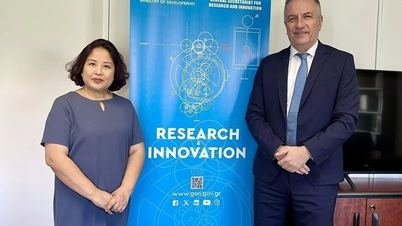

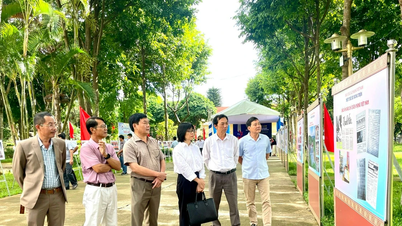


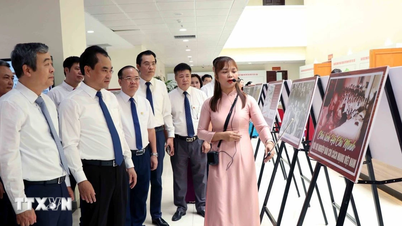




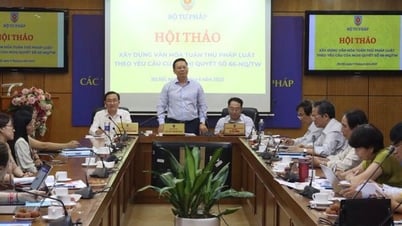







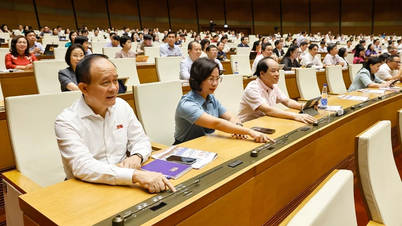
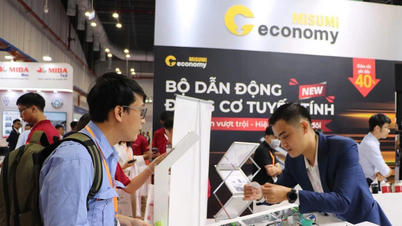
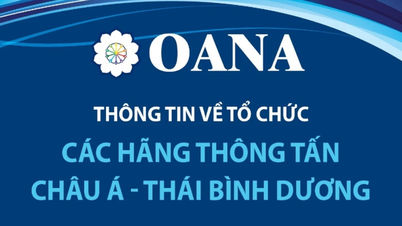






















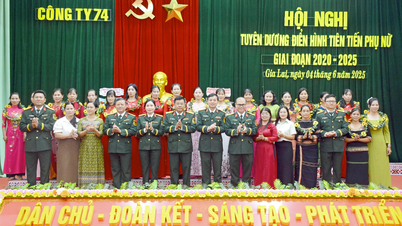





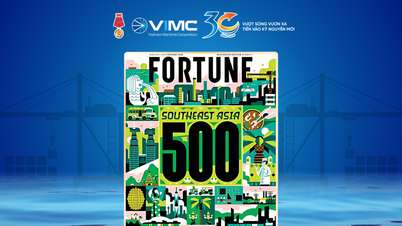


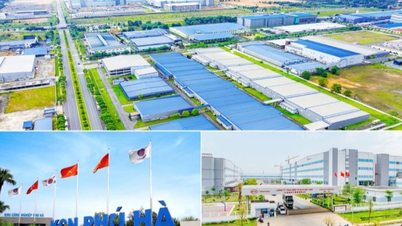




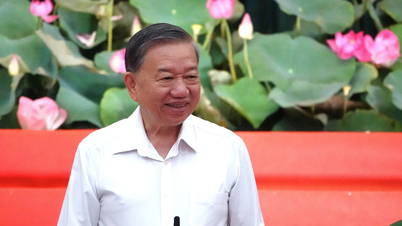

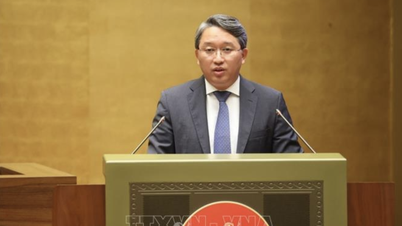



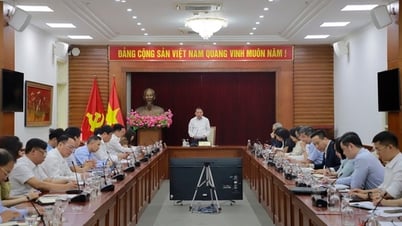
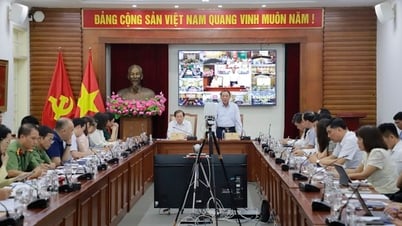



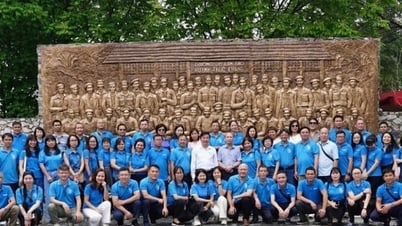

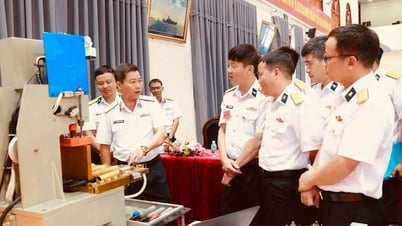







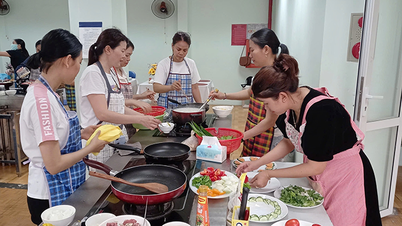

















Comment (0)